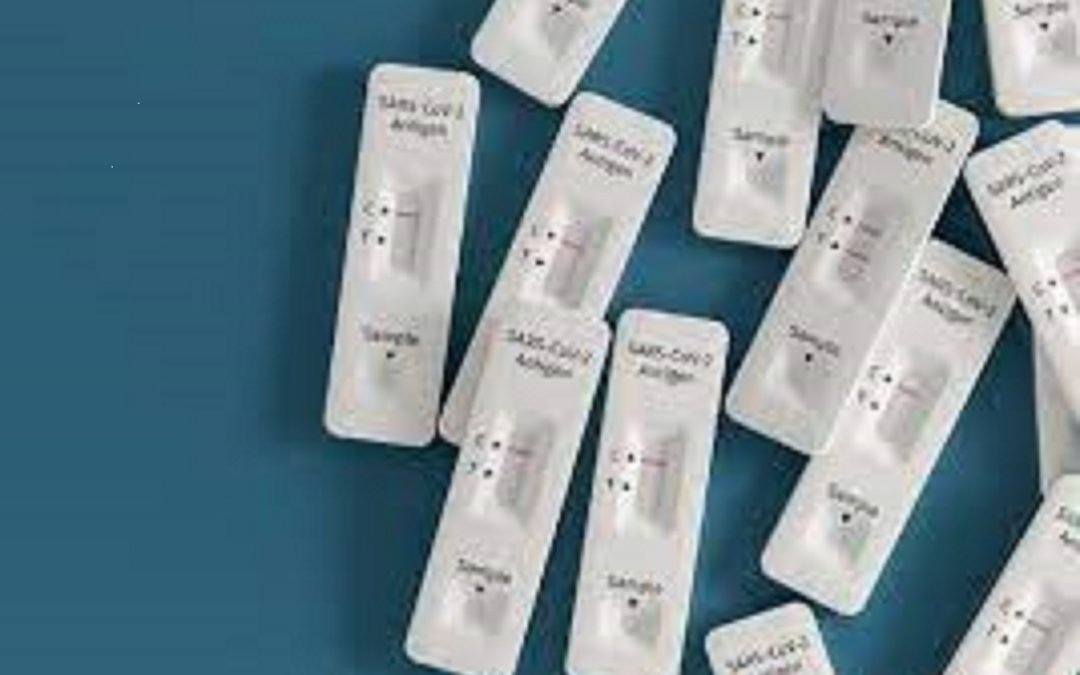March 15, 2022
In a recent article in The Scientist than appeared back in January, they mentioned using several pre-print articles which are cited for this article. In one of the pre-print articles by Adamson et al published on March 5 about a very recent small study by researchers in the United States, they reported that two widely used rapid antigen tests (Abbott BinaxNOW and Quidel QuickVue) appeared to to lag by several days in the detection of Omicron cases where supposedly many infected people continuing to test negative on these antigen tests even after receiving positive test results from Sars-CoV-2 PCR tests of saliva samples. The research was largely epidemiological and did not appear to use statistical methods. They assume that some of the participants unwittingly transmitted the virus to other people between testing negative on rapid antigen tests.
In this second pre-print article which was from an earlier study than the previous, researchers in Switzerland had compared performance of seven different rapid antigen tests for Sars-CoV-2 which were done on cultured virus instead of samples provided by people. They did utilize statistical methods like logistic and linear regressions, test of proportions for comparing sensitivity, and mixed-effects logistic regression with tests nested within patients since patients had more than one test so there was definitely more statistical rigor in this paper. The authors then had come to the conclusion that the rapid tests were definitely less sensitive to the Omicron variant and compared to detecting the Delta variant, which then influenced the FDA to conclude that the rapid antigen tests could detect the Omicron variant but with reduced sensitivity.
They then mentioned that other groups had come up with somewhat different conclusions, in fact citing a third pre-print article from January 10, that concluded the rapid antigen tests were able to pick up 95% of people with high levels of the virus. They then updated this The Scientist article in March citing another pre-print article that claims the rapid antigen tests can detect the Omicron variant, which apparently matches a growing body of evidence in the literature. This then seemingly contradicts the articles that came out even a few months ago. However, it is so important to note that all of these conclusions are based on pre-print articles, none of which have been formally published in a peer-reviewed journal. We must always keep this in mind when reading these articles.
Written by,
Usha Govindarajulu
Keywords:
COVID-19, rapid antigen tests, Omicron, delta, PCR tests
References
Offord, Catherine (January 14, 2022) “Are Rapid Tests Worse at Detecting Omicron – And Does it Matter”” The Scientist, https://www.the-scientist.com/news-opinion/are-rapid-tests-worse-at-detecting-omicron-and-does-it-matter-69611
Adamson B, Sikka R, Wyllie AL, and Premsrirut P (2021) “Discordant SARS-CoV-2 PCR and Rapid Antigen Test Results When Infectious: A December 2021 Occupational Case Series” medRxiv 2022.01.04.22268770; doi: https://doi.org/10.1101/2022.01.04.22268770.
Bekliz M, Adea K, Alvarez C, Essaidi-Laziosi M, Escadafal C, Kaiser L, and Eckerle I (2022) “Analytical sensitivity of seven SARS-CoV-2 antigen-detecting rapid tests for Omicron variant”, medRxiv 2021.12.18.21268018; doi: https://doi.org/10.1101/2021.12.18.21268018
https://www.google.com/imgres?imgurl=https%3A%2F%2Fcdn.the-scientist.com%2Fassets%2FarticleNo%2F69611%2FaImg%2F44824%2Frapidtests-l.jpg&imgrefurl=https%3A%2F%2Fwww.the-scientist.com%2Fnews-opinion%2Fare-rapid-tests-worse-at-detecting-omicron-and-does-it-matter-69611&tbnid=aiqPw_PDM5AkuM&vet=12ahUKEwje1_Cnisv2AhWFqHIEHd-zDCsQMygJegUIARCWAQ..i&docid=OU_0Jp53CoRYmM&w=1200&h=840&q=rapid%20antigen%20tests%20and%20omicron&ved=2ahUKEwje1_Cnisv2AhWFqHIEHd-zDCsQMygJegUIARCWAQ
